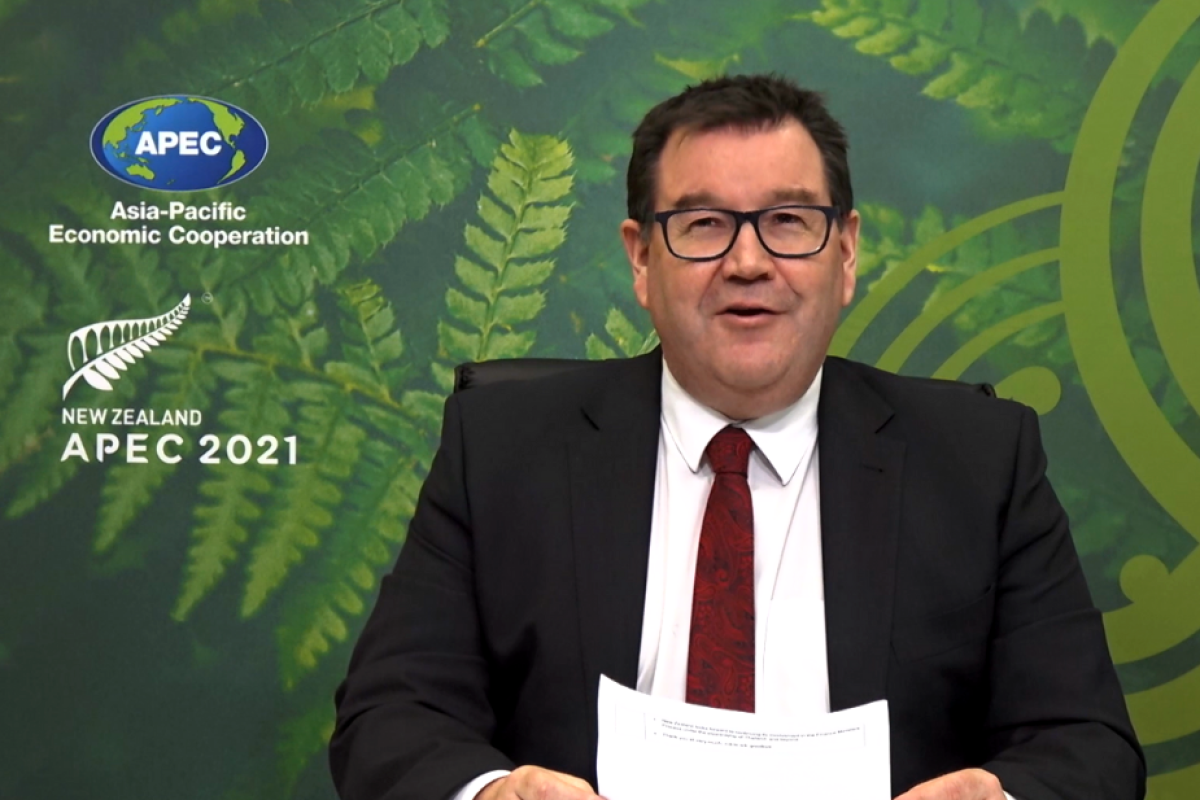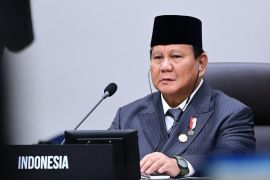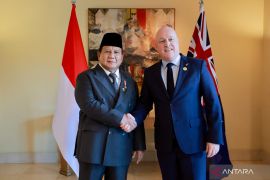"We continue to battle the effects of the COVID-19 pandemic," New Zealand Finance Minister and Deputy Prime Minister Grant Robertson remarked while opening the 2021 APEC Finance Ministers’ Meeting on Friday.
"The pain that it has brought on our people, our economies and our healthcare systems should not be downplayed," Robertson said, as noted in a release issued by the 2021 APEC Finance Ministers’ Meeting and received here on Monday.
APEC finance ministers acknowledged common pursuit for finding efficient tools in responding to COVID-19 to ensure member economies continue to preserve jobs and livelihoods, fund public services, and protect the most vulnerable communities.
Minister Robertson emphasized that despite economic activity across the region having rebounded and vaccination rates having increasing, managing the complexity of APEC’s economies is a significant challenge, as members face several headwinds, some of which can be influenced directly through individual and collective actions.
"The pandemic has caused a rapid rise in public debt, and demands for new spending continue to grow as we recover," he affirmed.
"More than ever, we need to use our resources effectively while implementing structural reforms to lift living standards," he emphasized.
Fiscal policy and budget frameworks have played a crucial role in the ongoing response to COVID-19 and in the economies’ plans for recovery and beyond.
APEC finance ministers deliberated on ways to balance the fiscal policy in battling COVID-19 and enabling recovery whilst concurrently ensuring its long-term sustainability.
The finance ministers also exchanged views on approaches to budgets and budgeting, which can help support the fiscal policy to deliver its objectives as well as member economies’ priorities, such as environmental sustainability and well-being.
"As we work to bring the pandemic to an end, we must not lose sight of the broader challenges affecting our region, including climate change and inequality," Minister Robertson affirmed.
"The government policy can support those most in need, through redistributive fiscal policies and welfare-enhancing structural reforms in dealing with inequalities," he stated.
Robertson urged member economies to play their part in responding to the climate challenge, spur green innovation, and make economies more resilient.
Noting the importance of climate change and the transition to a lower-carbon future, finance ministers explored policy tools to ensure the necessary flow of capital to support this shift, including the use of fiscal funding tools and innovative forms of funding, including partnerships with the private sector.
Robertson called on the public and private sectors to work together to boost trade, employment, and prosperity.
"Our continued commitment to combating COVID-19 and delivering the best outcomes for our people, and our commitment to each other as part of APEC, will continue," he emphasized.
APEC finance ministers issued a joint statement at the conclusion of their meeting and agreed on the refreshed Cebu Action Plan strategy that encourages economies to pursue a more sustainable financial future for the Asia-Pacific region.
The next APEC Finance Ministers’ Meeting will be held in Thailand in October 2022.
Related news: APEC community is key to Asia-Pacific's growth: Suparmanto
Related news: APEC pushes structural reform agenda for quality growth
Reporter: Yuni Arisandy Sinaga
Editor: Rahmad Nasution
Copyright © ANTARA 2021











